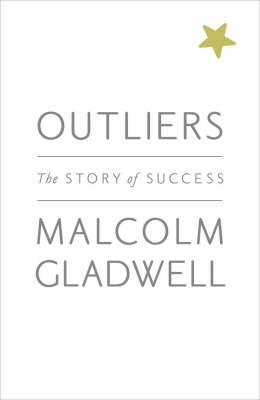Success is such a loaded word. When I see the word on the cover of a publication, I'm almost always suspicious and repelled. And I suspect you are too.
 But! Please, PLEEEEEAAASE, don't be put off journalist Malcolm Gladwell's book Outliers: The Story of Success.
But! Please, PLEEEEEAAASE, don't be put off journalist Malcolm Gladwell's book Outliers: The Story of Success.
Fundamentally, Mr Gladwell uncovers the critical drivers of success - the fortune of being in the right place, at the right time, in the right era.
He does this without detracting from people's raw talent and hard work, as it goes well beyond any facile treatment of people just being "lucky". It's a fascinating read, as he profiles all sorts of pioneering people: the Beatles, sports people, Bill Gates and other tech giants. Just to name a few. He delves into their backgrounds, upbringings, geographic environments etc, and identifies how such circumstances scaffold their paths to success.
"Accumulative Advantage" and success
The book starts off discussing what Gladwell terms "Accumulate Advantage" which basically describes the various benefits and gains arbitrarily afforded to certain people, groups, or individuals, and how such benefits propel such people into success.
Gladwell illustrates this in a wee yarn about Canadian pro ice hockey players. The majority of first class players in Canada are born at the start of the calendar year. This is significant because the youth hockey leagues in Canada compartmentalize the age group competitions by each calendar year - kids born in January of a particular year play in the same class as those born in December of that same year. What this means is that kids born in January, February, March are more mature than those born later in the year (December etc), and therefore, such kids are stronger, faster and more coordinated than their younger contemporaries - so they are considered to be "better athletes". The "better athletes" are then selected for regional representation, and as a result, get selected for special teams and professional development.
THEREFORE, a small advantage at a young age (quite simply, being almost a year older than other kids) accumulates massively after several years of professional development in special programmes.
Gladwell argues that this particular example of "Accumulative Advantage" is underpinned by an arbitrary and overlooked indicator - age. Such observations may sound like nothing special, but when 70% of pro hockey players in Canada are born in the early months of a calendar year, one starts to question what success in certain professions is contingent upon.
The 10,000 hour principle and success
Other similar examinations to Accumulated Advantage (backed by research) share a common important theme, known as the 10,000 hour principle - the idea that to become a master of something, you have to do it for a minimum of 10,000 hours.
Gladwell goes on to demonstrate through various anecdotes the bizarre circumstances successful people found themselves in in their formative years, and how the "planets aligned" to afford them the experience of 10,000 hours worth of training in a particular field. For example, in his younger years, Bill Gates just happened to have pretty much exclusive access to a new type of computer with "mainframe" technology, which allowed him to learn programming as a youth in the 1960s. This was a period when almost no-one, accept a small group of kids, had access to computers which enabled them to learn programming for almost unlimited periods of time.
The result being that by the time the computer revolution kicked off in the 70s, these guys were perfectly placed to be at the forefront of the movement.
Gladwell asserts that Mr Gates and others would not have founded such companies if they weren't in the right place, at the right time, in the right era.
In fact, here's a list of the most pioneering software tech people of our generation and when they were born (all in an 18 month window around 1955):
Bill Gates, Microsoft Founder : 28 October 1955
Bill Joy, SUN Co-Founder: 8 November 1954
Scott McNealy, SUN Co-Founder: 13 November 1954
Steve Jobs, Founder Apple: 24 February 1955
Eric Schmidt, Google & Novell CEO: 27 April 1955
Paul Allen, Microsoft Founder: 21 January 1953
Steve Balmer, Microsoft Founder: 24 March 1956
Vinod Khosla, SUN Co-Founder: 28 January 1955
Andy Bechtolsheim, SUN Co-Founder: 30 September 1955
AGAIN, age and era being a critical driver of success - and if you had access to the small amount of computers in the USA at the time then you were in the box seat!
Outliers was an influential bestseller for a reason - it's very stimulating and gets you thinking about the circumstantial reasons for success, without dismissing hard work and innovation.




Add a comment to: Outliers